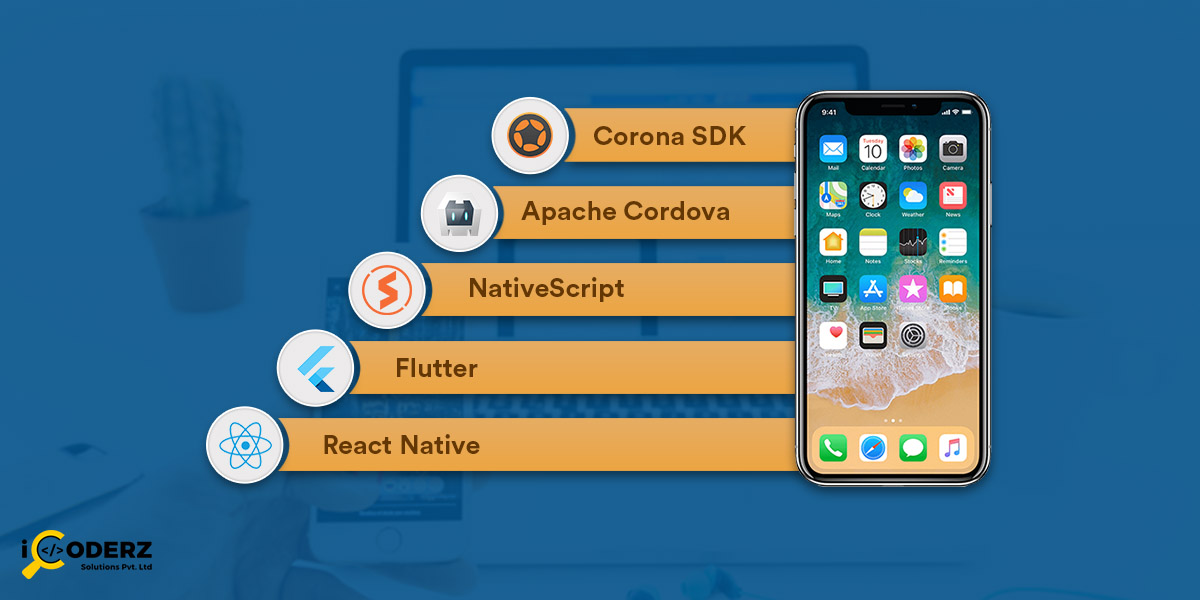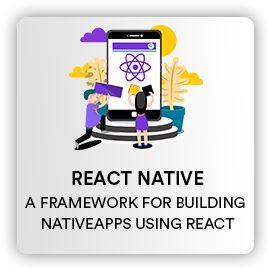Table of Contents
All the modern businesses must go for mobile app development as the world is going mobile. But multiplicity is the law of the digital world. You have many ways to do the same thing in the digital world for almost everything. The same is true for mobile app development.
A mobile app development is possible in many development languages and many frameworks. Many people will advise you to go for the native approach for both Android App Development and iOS App development. On the other hand, many others will advise you to go for a hybrid approach. And there will be many others who will advise you to use a framework so that you can go cross-platform native. None of them are wrong. It all depends on your requirement and budget. Here, we will look at the Best 5 Mobile App Development Frameworks that you should use in 2024.
1. Corona SDK
If you require a fast game and app development, Corona SDK should serve the purpose. It was developed back in 2009. A full stack mobile app development company can develop a mobile app very quickly using Corona. It is possible because the backend of Corona depends thoroughly on Lua. Lua is a very lightweight, completely adaptable and multi-paradigm programming language. Lua is focused on portability, extensibility, speed, and ease-of-use. Corona offers a built-in engine, native UI support, and more than 500 APIs. It also has an advertising platform built specially for developers. Apps for Android, iOS, MacOS, Android TV, tvOS and Kindle Fire can be developed using Corona framework.
2. Apache Cordova
Apache Cordova was formerly known as PhoneGap. Originally, this mobile application development framework was developed by Nitobi. In 2011, Adobe Systems purchased and released its open-source version called Apache Cordova. It lets developers develop mobile apps using web development technologies like CSS3, HTML5, and JavaScript. So it is not dependent on platform specific APIs. It is very popular for Android mobile app development. It has a number of third-party tools, a huge plugin library, and an active developer community. As a result, it is more worthwhile amongst a lot of mobile app development frameworks.
3. NativeScript
Among the most used web development technologies, JavaScript, Angular, and TypeScript are arguably the top 3. One can use all of them to develop mobile apps using NativeScript. It provides a native user interface from a single code base. A commercial Bulgarian company backs NativeScript so it has all the support it needs. One can develop native iOS applications as well as native Android applications using JavaScript, TypeScript Angular, and Vue.js. It uses V8 JavaScript engine for Android and JavaScriptCore for iOS to access all the device APIs directly. As a result, it requires no plug-ins. And one can develop mobile apps for both Android and iOS without the knowledge of Java, Objective-C, and Swift. While compiling, NativeScript transpiles all the XML components to native Android and iOS components. Then is bundles them to an application binary.
So, while running NativeScript mobile applications, WebView is not mandatory. And by providing the native components, NativeScripts optimize the performance of applications to the maximum level.
4. Flutter
Flutter is an open-source and cross-platform framework for hybrid mobile app development. Google launched it in 2017. Flutter is based on Dart, a coding language developed by Google and very easy to learn. Its configuration and set-up process is very simple. It uses proprietary widgets for both Cupertino and Material design components. They look really good when building fully-custom UIs so it is a huge advantage. Its performance is also marginally higher than most other cross-platform frameworks. What makes Flutter very interesting is the fact that it doesn’t use WebView to render the application. It also doesn’t use native UI components. Flutter uses a 2D rendering engine named Skia to create visual components on the screen. They look like native Material Design and Cupertino style widgets but they are not. So it is only going northwards from hereon thanks to Google’s push.
5. React Native
Facebook launched its cross-platform mobile app development framework ‘React Native’ in 2015. In no time, many developers adopted it and it became very popular among their clientele for mobile app development because it reduced the cost and time drastically. React Native is an open-source framework and it uses JavaScript as its language. It is 3 years old, it has more support for IDEs and tools for mobile app development. React Native builds a truly native mobile application because the React Native components are transpiled to native iOS and native Android components while using JavaScript and the React framework.
If you’re using React on the web, React Native would be a logical choice for mobile app development. It is very popular thanks to Facebook and Instagram push.
In The End
These 5 frameworks are going to be in demand and use in 2019. Hire an expert mobile app development company if you want to go mobile for your business. iCoderz Solutions is a full stack mobile app development company and a website development company. Since 2009, we have been delivering iOS app development solutions and Android app development solutions. We have dedicated teams of expert developers for all of your mobile app development needs. We have developed more than 400 mobile apps and more than 100 websites. Our clientele is in the north of 300 with a very high retention ration. Contact us to get a quote and Minimum Viable Product (MVP) up and running in no time.
Read Mobile App Development Related Posts
- 3 Benefits of One Day Delivery For eCommerce Website & Mobile App
- How to Build an On-Demand Grocery Delivery App For On Demand World
- Flutter Release Preview 2 : Cross-Platform Framework For Mobile App Development
- Native Apps Vs Hybrid Mobile Apps : Which Approach Is Better – Jack of All or Master of One?








6 comments